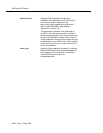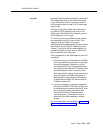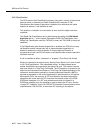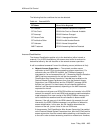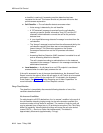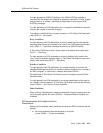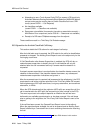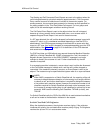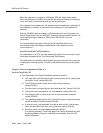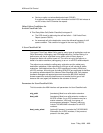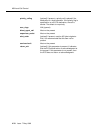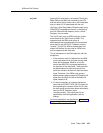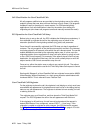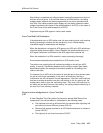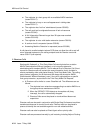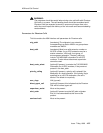
ASAI and Call Control
4-18 Issue 7 May 1998
When the originator is a logged-in ACD agent, ACD call delivery rules apply.
When the originator is a station user (the call was delivered through a hunt group,
not an ACD split), normal alerting and call delivery take place.
If the originator has a display set, the display shows the destination’s extension (if
the destination is internal), or the name of the trunk group (if the destination is
external).
With the OCM/EAS feature enabled, a VDN extension can be an originator for a
Switch-Classified call. See the
DEFINITY Enterprise Communications Server Call
Vectoring/Expert Agent Selection (EAS) Guide
, 555-230-521, for more
information.
It is recommended that agents receiving Switch-Classified calls work in
auto-answer mode with headsets (administered on the station form with
“auto-answer on”).
Switch-Classified Call Destination
If the destination is on-ECS, the user receiving the call will receive a priority ring if
it has been requested by the Third Party Make Call Request.
If the destination has a display, the originating group (for example, the hunt group)
is displayed as the calling party. This call cannot be picked up by a pickup group
user.
Negative Acknowledgement (NAK) of a
Switch-Classified Call
A Third Party Make Call (Switch-Classified) request is denied if:
■ The “type” field in the Domain IE (which codes the dest_route_select) does
not specify “trunk” (cause=CS0/100).
■ The ECS cannot obtain a time slot or other internal resource
(cause=CS3/40).
■ The alert order is not specified as “alert destination first” (cause=CS0/100).
■ The service circuit requested is not a call classifier (cause=CS0/100).
■ The calling number is neither a split nor an announcement extension
(cause=CS0/28).
■ The request specifies that the call is to be direct-agent or supervisor-assist
as well as Switch-Classified (cause=CS3/80).
■ A service circuit is not requested for external calls and the Trunk Access
Code was specified in the dest_route_select field (cause=CS0/96).
■ Service or option not subscribed/provisioned (CS0/50)
If an adjunct requests a Third Party Make Call (Switch-Classified call) with
Answering Machine Detection, and AMD is not enabled, then the ECS
denies the request.



